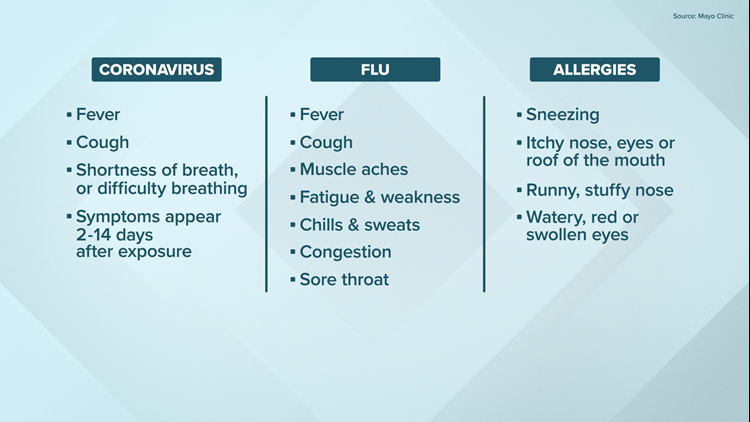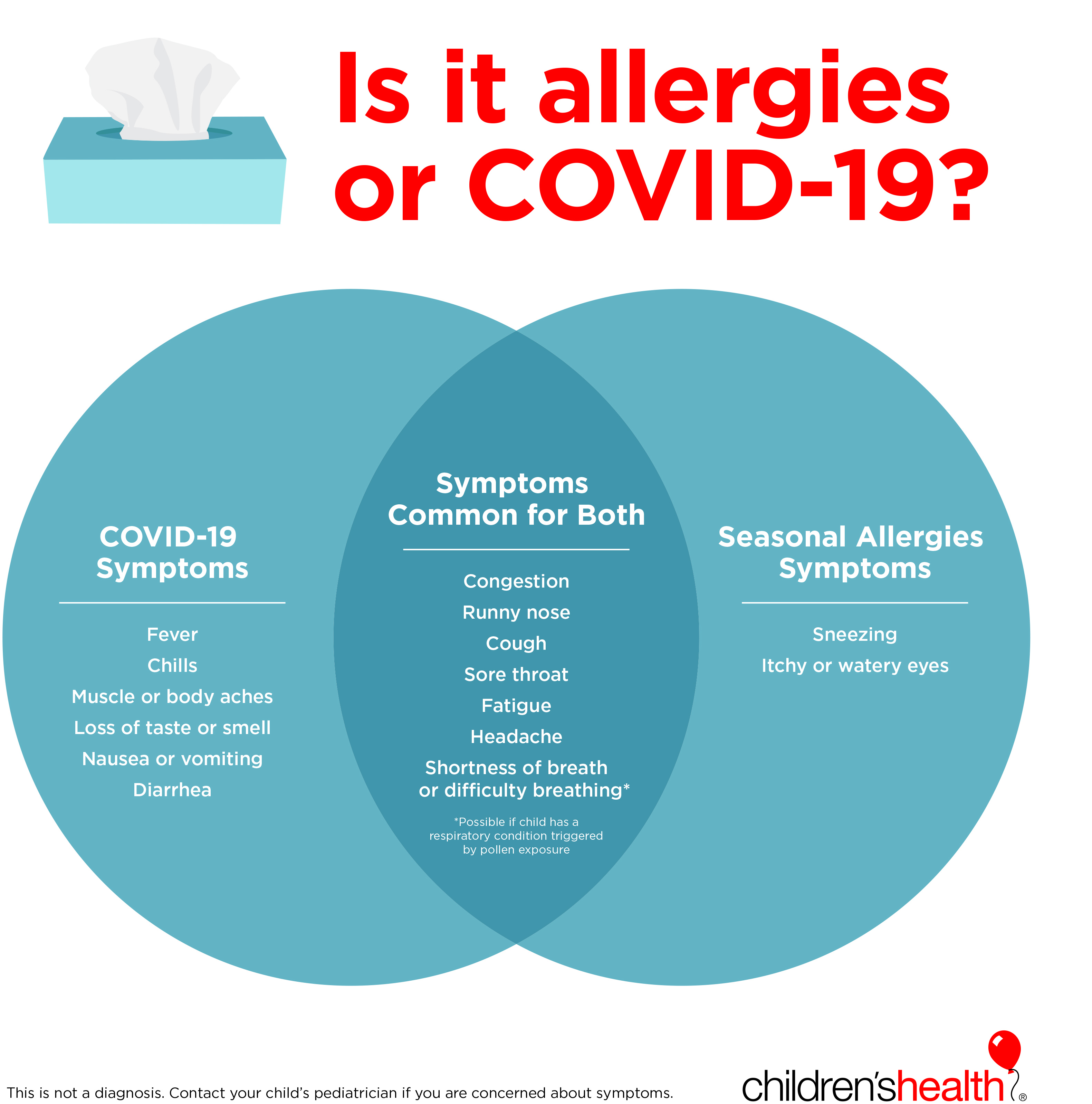
Can Allergies Be A Sign Of Covid. The main warning signs of COVID-19 the disease caused by the new coronavirus are fever fatigue and a dry cough. Allergies do not cause fever but it could be a COVID-19 symptom along with these other symptoms that can appear 2-14 days after a COVID-19 exposure. OKeefe says allergies are more likely to affect the upper respiratory tract whereas typical COVID-19 symptoms such as the cough which affect the. But one of the most likely causes of the annoying nasal symptom is seasonal allergies.

Those are more symptoms of allergies. But overall having allergies doesnt exclude you from getting the vaccine. If the reaction was after an mRNA COVID-19 vaccine either Pfizer-BioNTech or Moderna you should not get a second shot of either of these vaccines. OKeefe says allergies are more likely to affect the upper respiratory tract whereas typical COVID-19 symptoms such as the cough which affect the. Dr Ryan Stanton said most people who suffer from seasonal allergies should be able to tell if its the same issue theyve faced every year or something worse. This rash appears suddenly and over the hours quickly comes and goes.
Its recommended that if youve had an allergic reaction any of the ingredients in the vaccine you should not get it.
Other symptoms of COVID-19 not characteristic of allergies are body aches nausea vomiting and diarrhea. Both COVID-19 and allergies when severe may need emergency respiratory support and other supportive care. Heres what you need to know. This rash appears suddenly and over the hours quickly comes and goes. OKeefe says allergies are more likely to affect the upper respiratory tract whereas typical COVID-19 symptoms such as the cough which affect the. An immediate allergic reaction happens within 4 hours after getting vaccinated and could include symptoms such as hives swelling and wheezing respiratory distress.